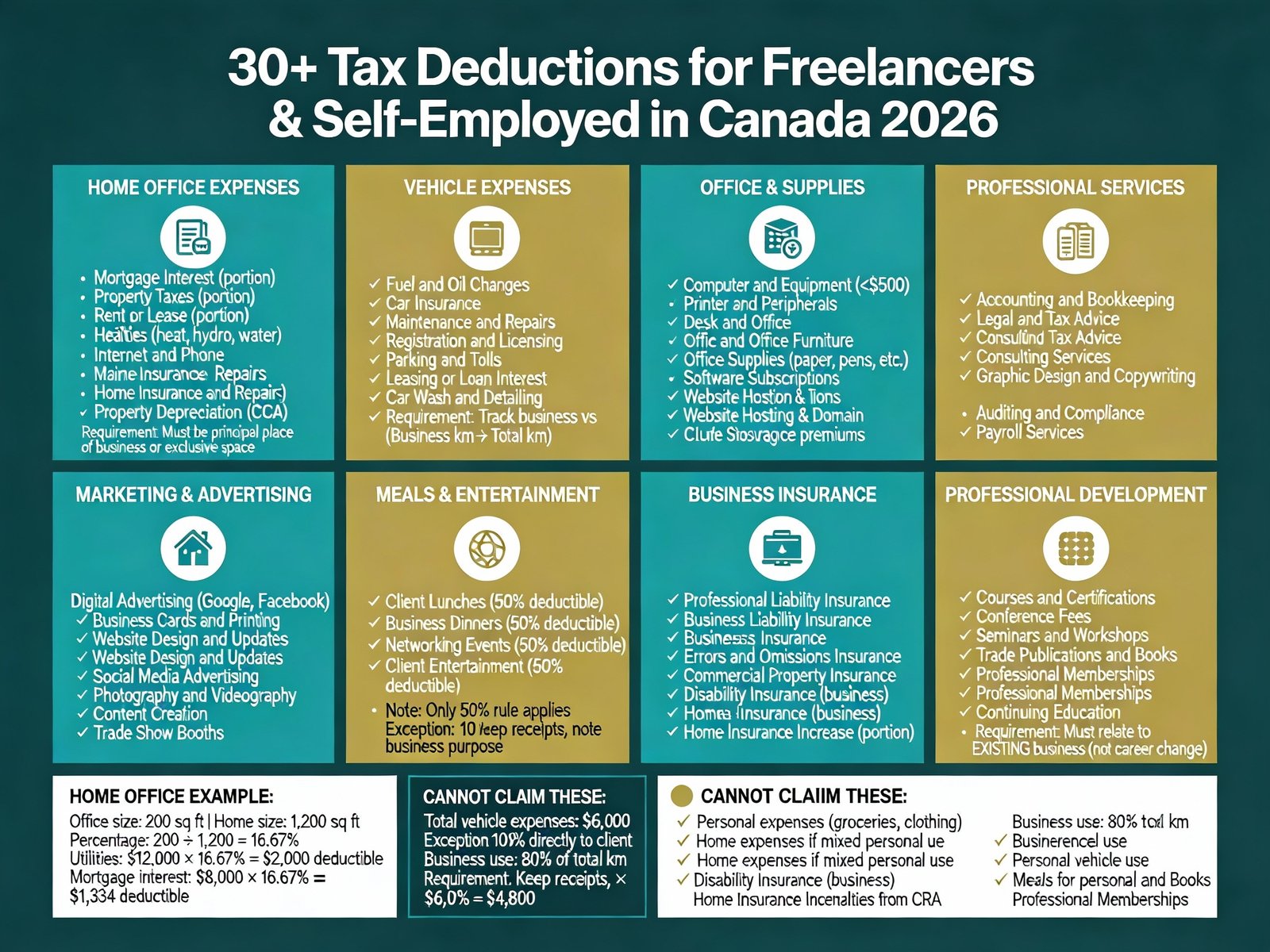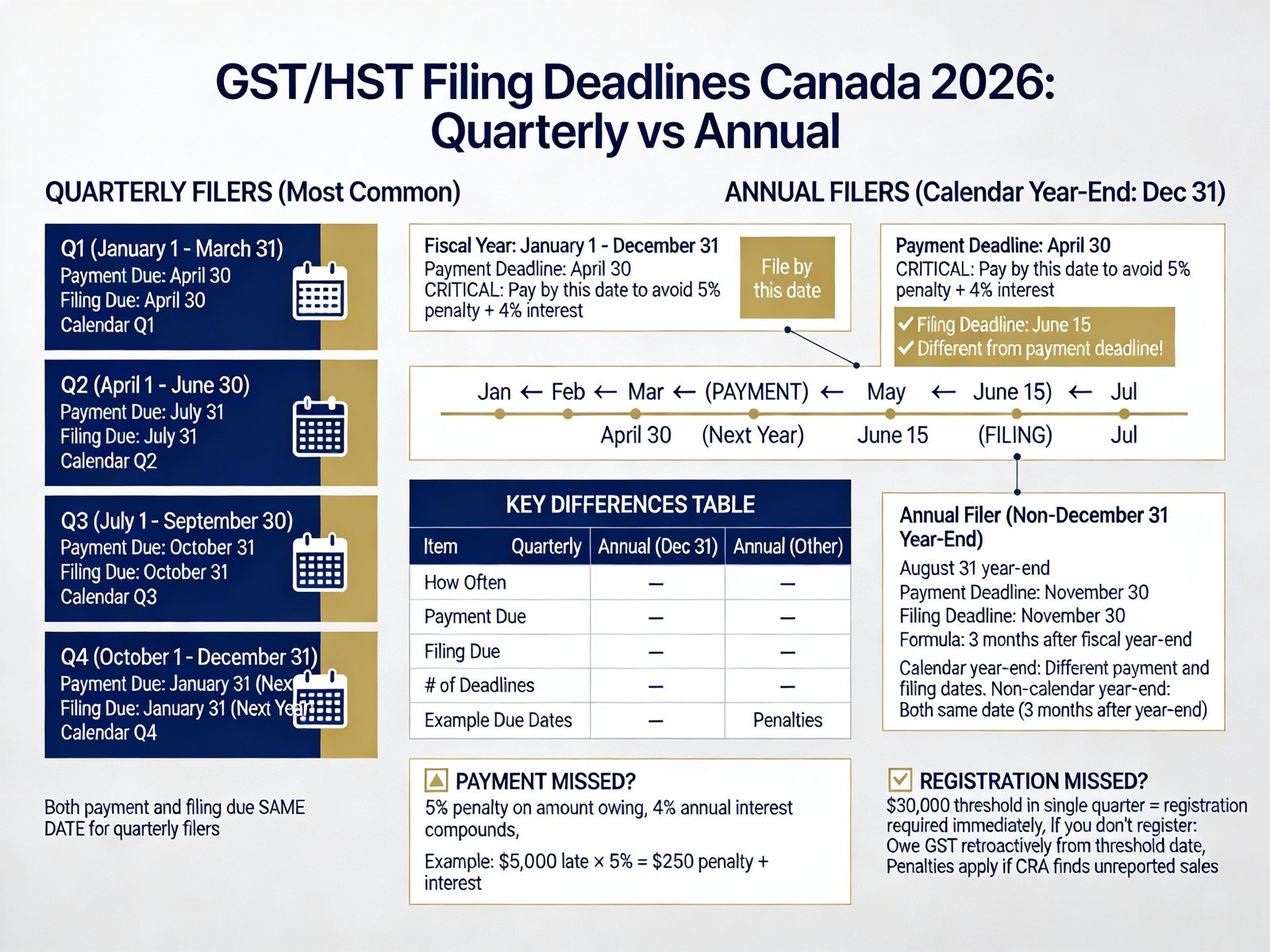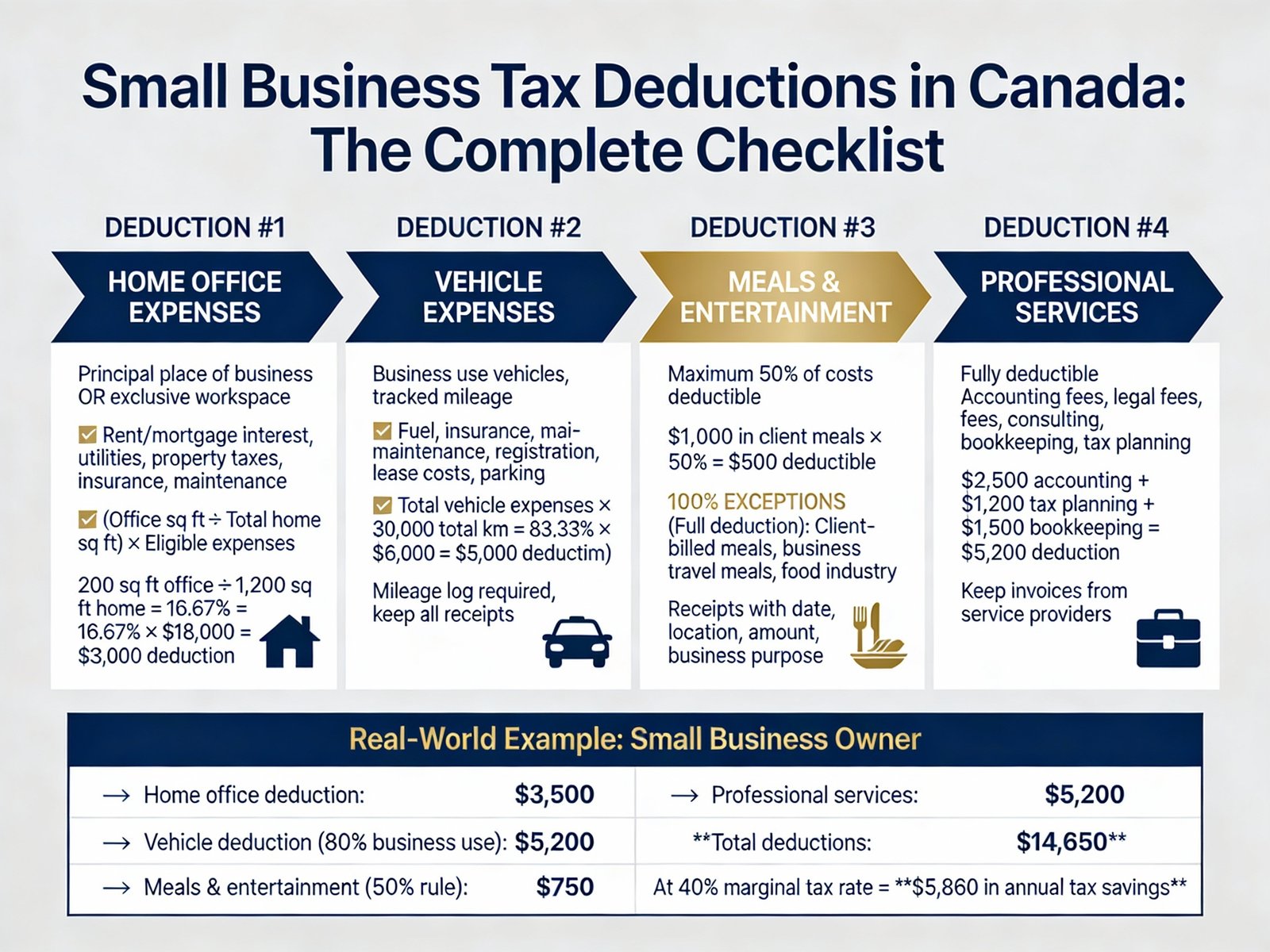The tax filing deadline in Canada is one of the most critical dates for taxpayers. Filing your taxes on time ensures you remain compliant with the Canada Revenue Agency (CRA), avoids penalties, and allows you to receive any refunds or benefits you may be entitled to without delays. Missing the deadline can result in financial consequences, including late filing penalties and interest charges.
This comprehensive guide will explain the tax filing deadlines in Canada, who they apply to, how they differ for certain individuals, and provide actionable tips to help you stay on top of your tax obligations. Whether you’re filing for the first time or need clarification about self-employment taxes, this article will cover everything you need to know.
What Is the General Tax Filing Deadline?
For most individuals in Canada, the tax filing deadline is April 30th of each year. This date applies to all taxpayers who earned income from employment, investments, or other sources during the previous calendar year. If April 30th falls on a weekend or public holiday, the deadline is extended to the next business day.
For example, if the deadline falls on a Sunday, you will have until the following Monday to file your return. Filing by this deadline is crucial to avoid penalties and ensure that any balance owing is paid on time.
The April 30th deadline is also important for individuals who expect a tax refund. Filing early or on time allows the CRA to process your return quickly, ensuring you receive your refund as soon as possible.
Tax Filing Deadline for Self-Employed Individuals
If you or your spouse/common-law partner are self-employed, you have until June 15th to file your tax return. However, it’s important to note that any balance owing for the tax year is still due by April 30th.
This means that even though you have more time to file your return, you must estimate and pay any taxes owed by April 30th to avoid interest charges. Failing to do so could result in penalties and interest on the unpaid balance.
For example, if you’re a freelance graphic designer with a balance owing of $5,000, you must pay this amount by April 30th, even if you don’t file your return until June 15th. If you wait until after April 30th to make the payment, the CRA will charge interest on the unpaid amount from May 1st until the date the payment is made.
Why Is Filing on Time Important?
Filing your tax return by the deadline is essential for several reasons. First, it helps you avoid late filing penalties, which can be substantial. The CRA imposes a penalty of 5% of your balance owing, plus 1% for each month the return is late, up to a maximum of 12 months. If you have a history of late filing, these penalties may be higher.
Second, filing on time ensures that you receive any benefits or credits you’re entitled to without delays. Programs like the Canada Child Benefit (CCB), GST/HST credits, and provincial or territorial benefits are often based on your income tax return. Missing the deadline could result in a temporary interruption of these benefits.
Finally, filing on time demonstrates good financial management and keeps you in compliance with the CRA, reducing the likelihood of audits or additional scrutiny.
Consequences of Missing the Tax Filing Deadline
If you miss the tax filing deadline and have a balance owing, the CRA will charge late filing penalties and interest on the outstanding amount. The penalties are calculated as follows:
- 5% of the balance owing for the first month of lateness.
- 1% of the balance owing for each additional month, up to a maximum of 12 months.
For example, if you owe $2,000 and file your return three months late, the penalty will be:
- 5% of $2,000 = $100
- 1% of $2,000 for each of the next two months = $20 per month
- Total penalty = $100 + $40 = $140
In addition to penalties, the CRA charges interest on the unpaid balance starting May 1st. The interest rate is set quarterly and compounds daily, meaning the longer you wait to pay, the more you will owe.
What If You Cannot File or Pay on Time?
If you cannot file your tax return or pay your balance owing by the deadline, it’s important to take action as soon as possible. Here are some steps you can take:
- File a Return Anyway: Even if you cannot pay your taxes by the deadline, filing your return on time can help you avoid late filing penalties.
- Set Up a Payment Plan: Contact the CRA to arrange a payment plan. The CRA may allow you to pay your balance owing in installments if you can demonstrate financial hardship.
- Request Taxpayer Relief: If you have valid reasons for missing the deadline, such as medical issues or unforeseen circumstances, you can apply for taxpayer relief. This could result in a reduction or cancellation of penalties and interest.
Tips for Staying on Top of Tax Deadlines
- Mark Your Calendar: Add reminders for key tax deadlines, including April 30th for most individuals and June 15th for self-employed taxpayers.
- File Early: Filing early gives you time to address any errors or omissions and ensures you receive your refund sooner.
- Organize Your Documents: Keep all income slips, receipts, and other tax-related documents in one place to streamline the filing process.
- Use Tax Software: CRA-certified tax software can help you file your return accurately and on time.
- Consult a Professional: If you have a complex tax situation, working with a tax professional can ensure compliance and maximize deductions.
Key Dates to Remember
- April 30th: General tax filing deadline for most individuals and the due date for any balance owing.
- June 15th: Tax filing deadline for self-employed individuals and their spouses/common-law partners.
Conclusion
The tax filing deadline in Canada is an important date for all taxpayers. Whether you’re an employee, self-employed, or a student, understanding the deadlines and their implications can help you stay compliant, avoid penalties, and make the most of any refunds or benefits. By planning ahead and filing on time, you can minimize stress and ensure that your taxes are handled efficiently.
If you need assistance with filing your taxes or navigating the CRA’s requirements, contact BOMCAS Canada at info@bomcas.ca or visit BOMCAS Canada. Our team of tax professionals is here to help you meet your deadlines and optimize your tax outcomes.










 View Our Location
View Our Location





 181 Meadowview Bay, Sherwood Park, AB T8H 1P7, Canada (Online Clients Only)
181 Meadowview Bay, Sherwood Park, AB T8H 1P7, Canada (Online Clients Only)